K-Food Reshapes New York's Industries – KOOM Festival 2025 Marks Korean Wave's Evolution from Culture to Commerce
K-Food Reshapes New York's Industries – KOOM Festival 2025 Marks Korean Wave's Evolution from Culture to Commerce
Brooklyn's Navy Yard Transforms into Hub of Korean Innovation
Brooklyn's Navy Yard was filled with Korean innovation this October. Running from October 16-18, KOOM Festival 2025 evolved beyond a simple cultural festival into an industrial platform where K-food, entrepreneurship, technology, finance, and K-culture converged. Organized by United Korean Founders (UKF), the event brought together global investors, international partners, and over 100 Korean startups.
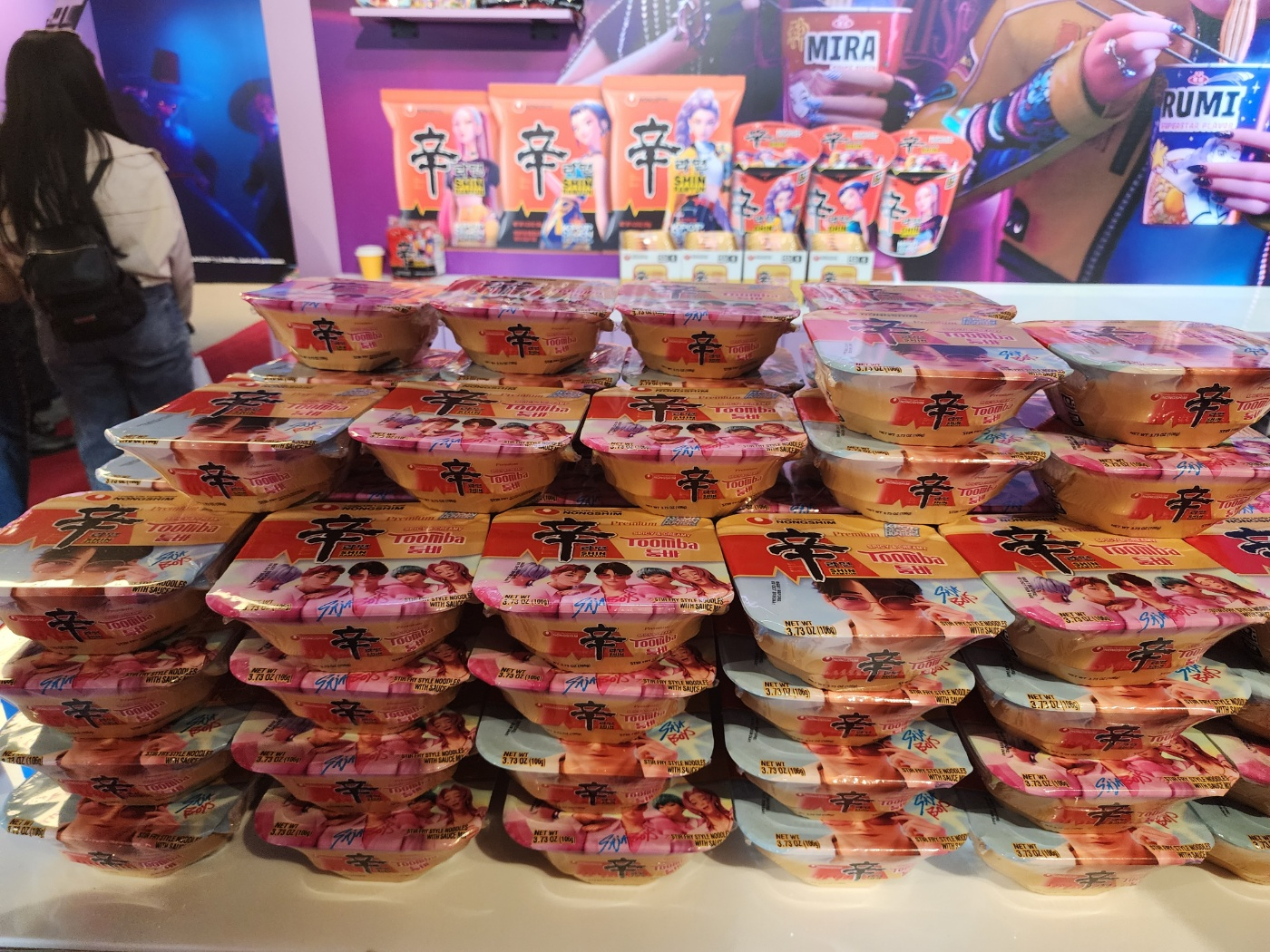
K-Food: From 'Cultural Industry' to 'Global Business'
At the heart of KOOM 2025 was a globalization strategy for the K-food industry. More than 15 F&B companies participated, including Seoul and New York's leading brands such as Okdongsik, Seoul Salon, Sagwa Tteokbokki, and Super Matcha, delivering a new K-lifestyle experience.
While grounded in traditional flavors, these brands strengthened their brand storytelling, design, and content integration, presenting a paradigm shift: "Food is brand, brand is culture."
New York investment ecosystem insiders noted that "K-food is no longer just an emotional domain but has become a bridgehead for global brand expansion."
This event went beyond simple food exhibitions, demonstrating how Korean food culture can evolve into global brand equity.
Sagwa Tteokbokki introduced a middle-class meal kit using natural wheat rice cakes; Super Matcha presented a sustainable brand based on organic matcha; and Sans Coffee showcased an alternative coffee brand that recreates coffee's flavor profile using 12 fermented herbs without coffee beans. These brands operated pop-up dining experiences at the festival in collaboration with local restaurants, with consumer testing consistently showing that "authenticity trumps localization" as a competitive advantage.
Representatives from leading Korean foodtech companies described the event as proof that "K-food is growing beyond a taste industry into a comprehensive industrial sector integrating culture, design, and content." Practical partnerships for New York market entry—including local real estate planning, distribution, branding, and investment attraction—were established on-site.
KOOM 2025 functioned as a turning point where Korean food expanded from a "taste" event to the center of an economic value chain through global consumer experiences (eatertainment, foodtech, digital retail).
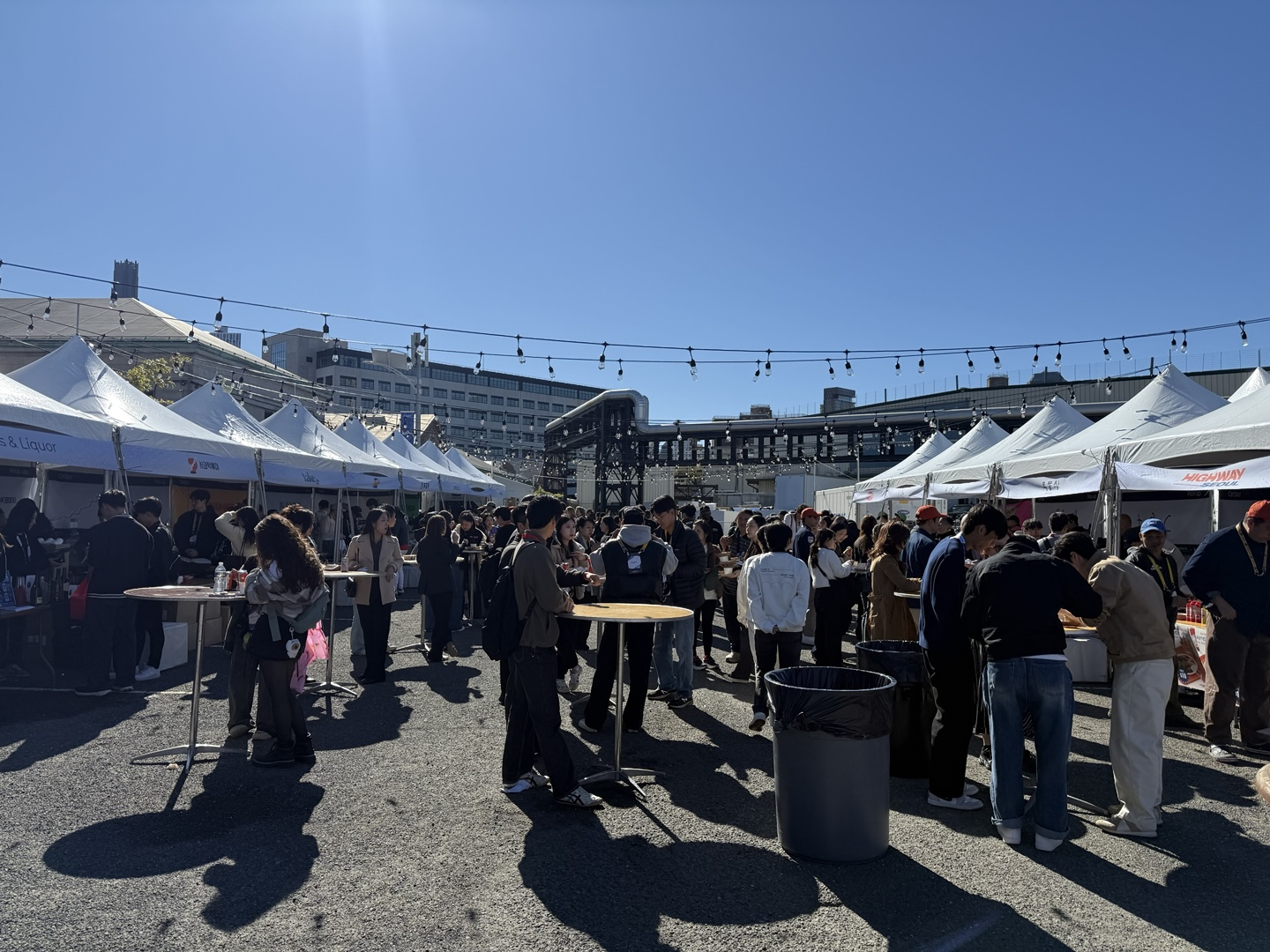
Nongshim – An Industrial Symbol Created with K-Pop Demon Hunters
The Nongshim flagship booth at the center of the wide-open festival hall symbolically embodied "the fusion of cultural IP and the food industry."
Throughout the booth walls, Shin Ramyun packages featuring characters from the global animation K-Pop Demon Hunters were displayed, and a ramen tunnel structure blending red Shin Ramyun neon with character colors greeted visitors. Attendees could customize their own ramen and participate in photo experiences wearing costumes of characters Rumi, Joy, and Mira. Notably, on the first day, American consumers flocked to the booth in such numbers that foreign fans outnumbered Koreans—a fact that became a talking point.
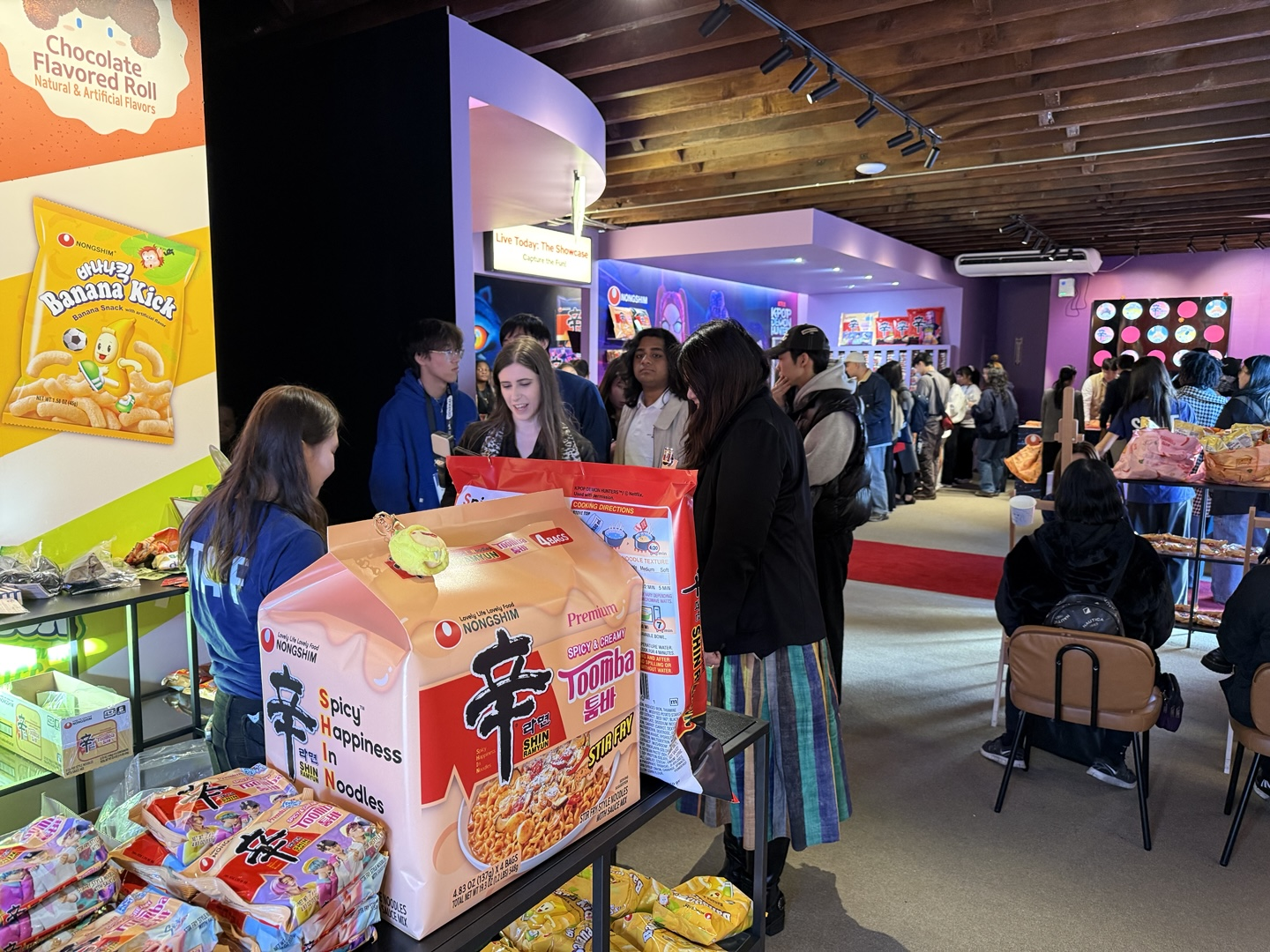
Beyond product displays, Nongshim combined social media meme campaigns to encourage visitors to share their booth experiences digitally. This campaign emphasized a new brand strategy: "Korean Wave now connects through taste, story, and digital experience." Participants' online posts spread rapidly, dominating New York social media feeds.
On-site tasting events were also held. "Hallyu Fusion Time," where visitors could enjoy Shin Ramyun and Tumba pasta simultaneously, ran up to three times daily, showcasing Nongshim's global product lineup (Shin Ramyun Black, Shrimp Crackers, Tumba, etc.). Young New York consumers expressed that "ramen has become a play culture itself."
Gilbert Nam, Nongshim Manager, stated at the event: "Nongshim, which started as a startup 60 years ago, is now spreading a 'cultural table' on the global stage. K-food is no longer just food to eat but an IP industry sharing experiences and stories." Ultimately, this booth demonstrated that the K-food industry is now being incorporated into a Korean-style complex industrial sector encompassing content, digital, and branding.
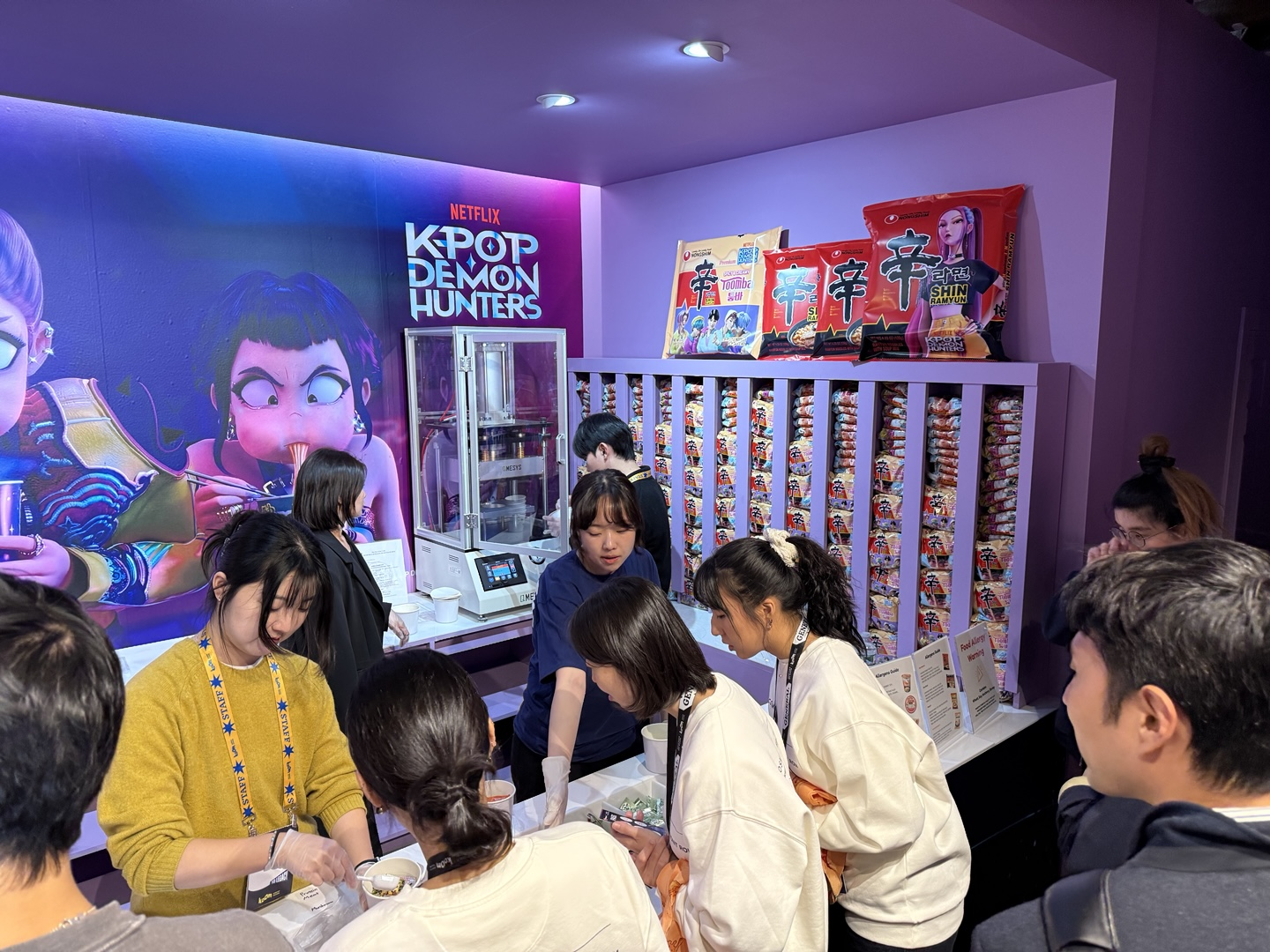
"Korean Food is the Entrepreneur's Story and Industry's Language" – Attorney Kim Sung-hoon's Perspective
Kim Sunghoon, Managing Partner at MISSION Law Firm, who set up a legal support booth at the festival, delivered a speech on "The Global Vision of K-Food Startups."
He emphasized on-site: "Korean food is not merely food but the entrepreneur's brand and, furthermore, the industry's narrative. Law is the design language supporting their expansion." Following last year, Kim operated a cross-border advisory program for F&B and content startups, presenting a global legal entry model for Korean food companies.
He noted, "The K-food value chain must connect creators, suppliers, legal experts, and investors," evaluating KOOM as "a site realizing such industrial connections."
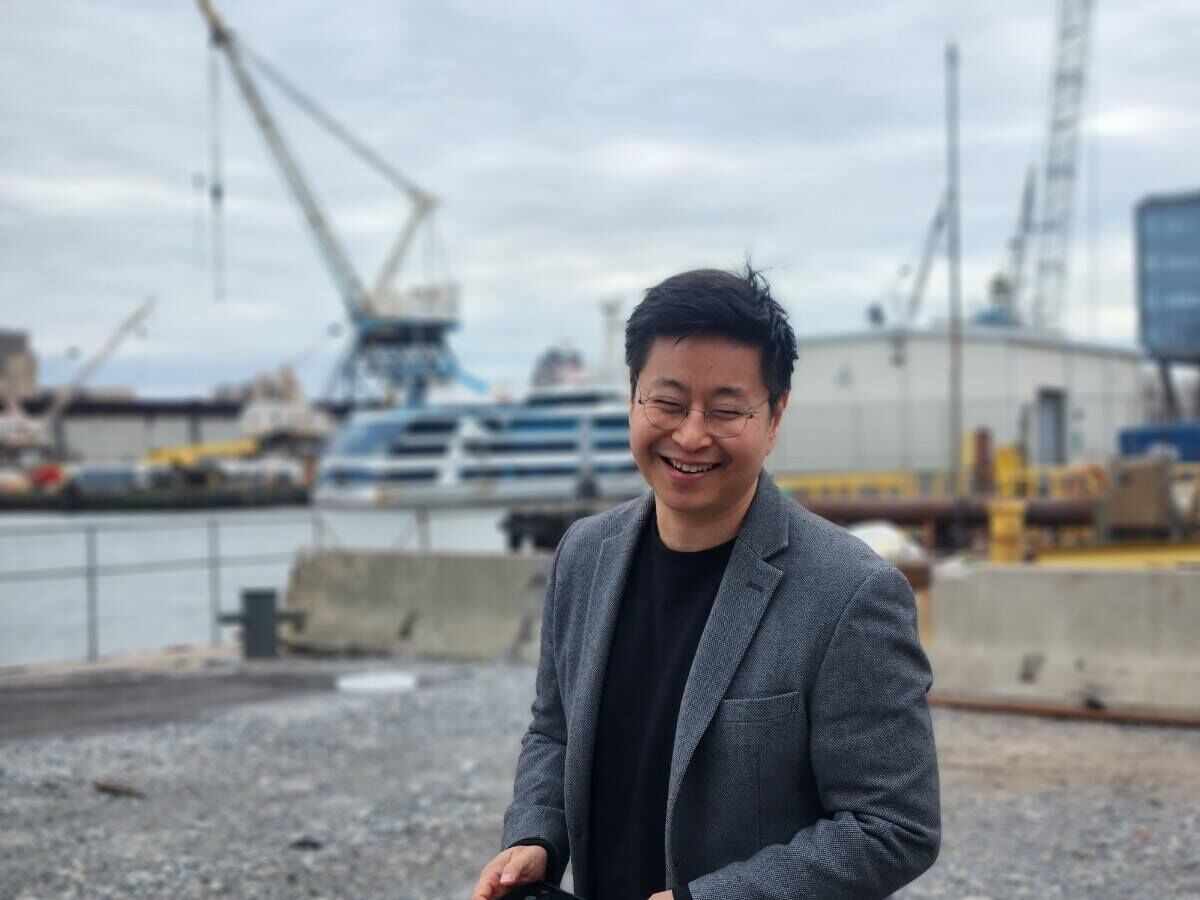
UKF: Drawing the Industrial Network of K-Innovation
The event's organizer, UKF (United Korean Founders), a startup network established in San Francisco in 2019, formalized an industrial convergence model of K-startups, K-lifestyle, and K-content through this New York event. Noom Chairman Jung Se-joo stated, "KOOM is a platform industrially expanding Korea's Cultural DNA," adding, "K-food is the starting point of this expansion and the center of a new value chain combining technology, investment, and distribution."
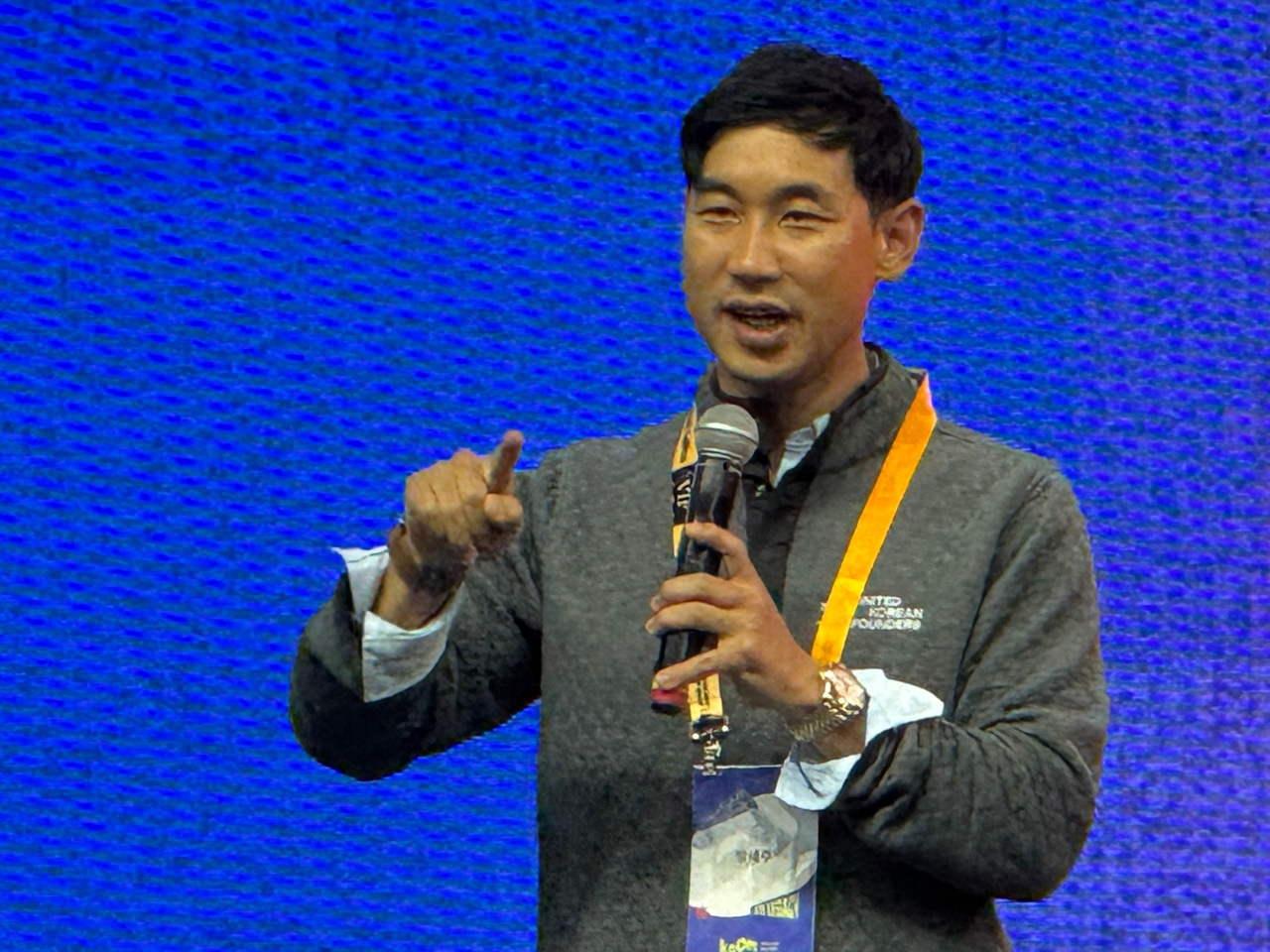
Major Korean companies including Naver, Genesis, Cosmax, Smilegate, Nongshim, and Korean Air participated as sponsors, demonstrating the potential of a "K-industry cluster" based on public-private collaboration.
A Korean Wave Festival Breaking Industry Boundaries
Nightly performances featured Epik High, Zion.T, Soyou, and Sam Kim, completing a hybrid ecosystem where "entrepreneurship, content, and music" converged in one space. Local New York cultural critics evaluated KOOM as "a symbol showing Korea's corporate ecosystem evolving into a single economic zone by connecting culture, technology, food, and finance."
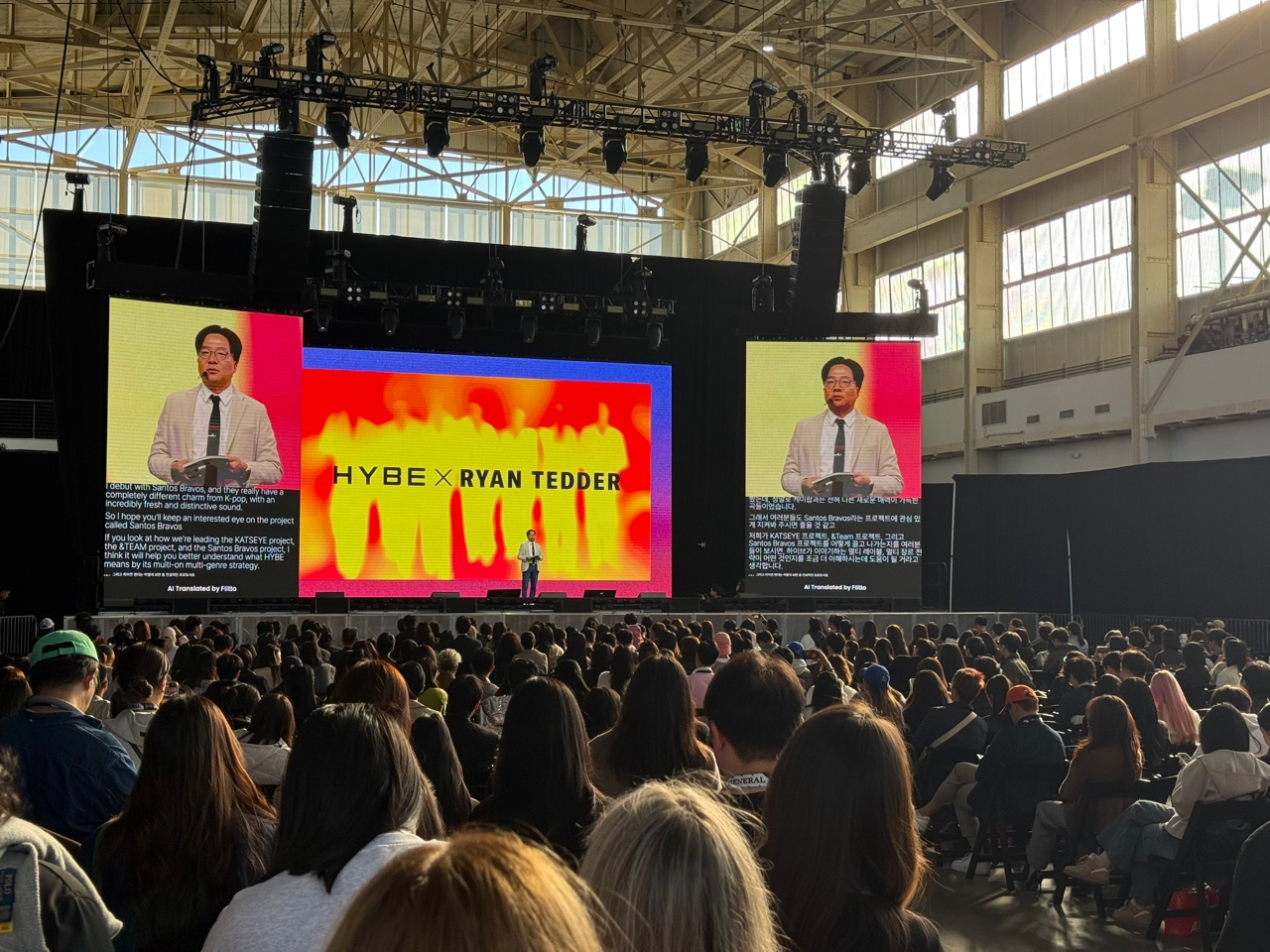
Conclusion
KOOM Festival 2025 clearly demonstrated that Korea's "cultural industry" is evolving into a "global economic industry."
Food becomes content, brands become industry, and entrepreneurs' stories translate into national competitiveness. It symbolizes an era where the Korean Wave no longer functions as "soft power" alone but as economic infrastructure.
KOOM, held in Brooklyn, New York, was not merely a festival but a site of global K-innovation demonstrating how Korea can integrate culture, business, and technology into an industrial language. This event marked a definitive moment in the transformation of Korean cultural exports into tangible economic power on the world stage.
“K푸드, 뉴욕의 산업을 흔들다 – KOOM Festival 2025, 문화에서 경제로 확장된 한류의 진화”
10월의 뉴욕 브루클린 네이비 야드(Navy Yard) 가 한국의 혁신으로 가득 찼다.
지난 10월 16일부터 18일까지 열린 KOOM Festival 2025는 단순한 문화 축제가 아니라 K푸드, 창업, 기술, 금융, K컬처가 융합된 산업 플랫폼으로 진화했다. 한인창업자연합 UKF(United Korean Founders)이 주최한 이번 행사에는 세계 각국의 투자자, 글로벌 파트너, 그리고 100여 개의 한인 스타트업이 한 자리에 모였다.
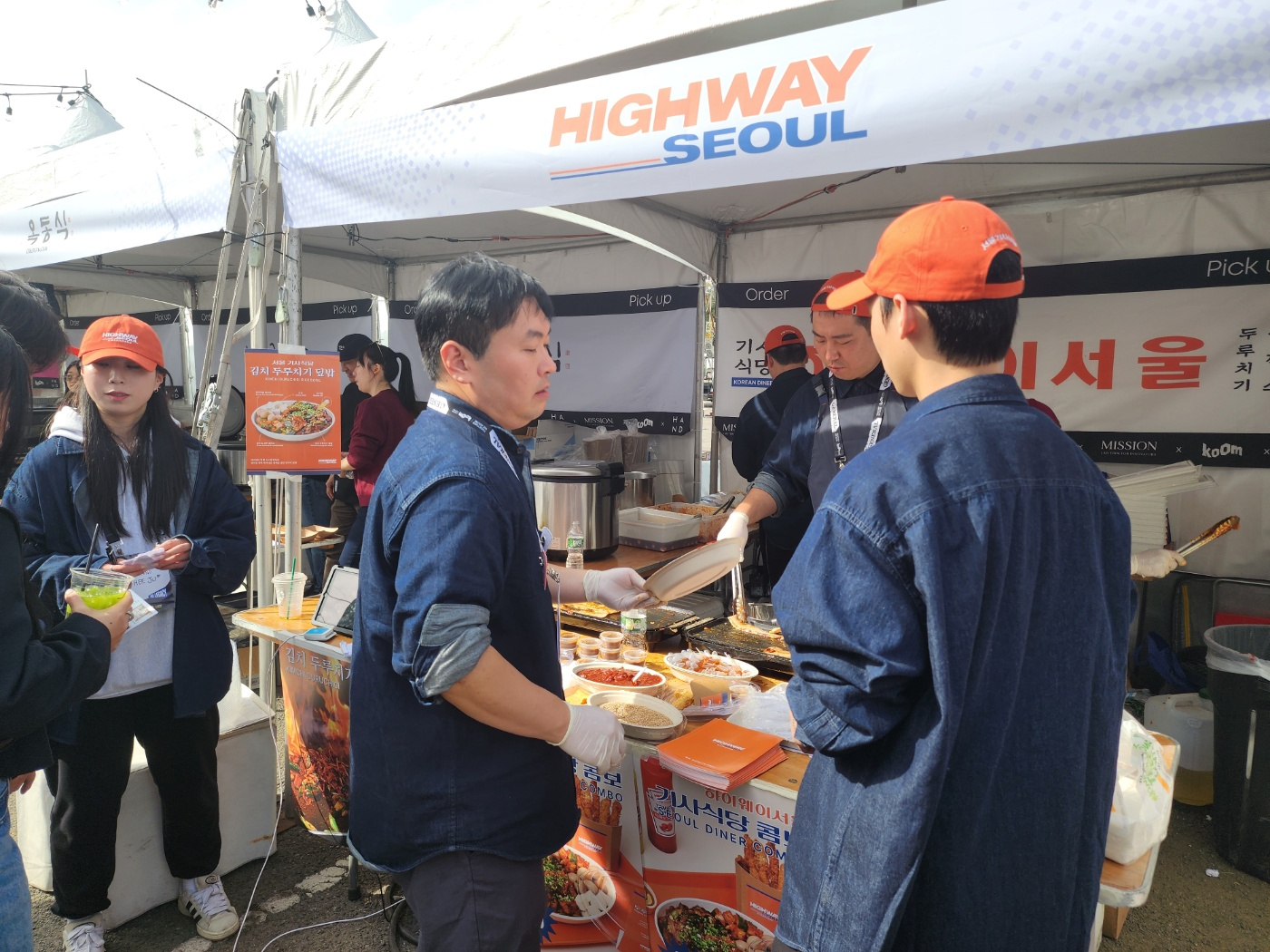
K푸드, ‘문화산업’에서 ‘글로벌 비즈니스’로
KOOM 2025의 중심에는 K푸드 산업의 세계화 전략이 있었다.
서울과 뉴욕의 대표 브랜드 옥동식, 서울살롱, 사과떡볶이, 슈퍼말차 등 15개 이상의 F&B 기업이 참여해 새로운 K라이프스타일을 전했다. 이들은 전통의 맛을 기반으로 하되, 브랜드 스토리텔링·디자인·콘텐츠 연계를 강화하며 “음식이 곧 브랜드, 브랜드가 곧 문화”라는 패러다임 전환을 제시했다 뉴욕 투자 생태계 관계자들은 “K푸드가 더 이상 감성의 영역이 아닌, 글로벌 브랜드 확장의 교두보가 되고 있다”고 평가했다.
특히, 이번 행사는 단순한 음식 전시를 넘어, 한국 식문화가 어떻게 글로벌 브랜드 자산으로 진화할 수 있는지를 실증한 현장이었다.
사과떡볶이는 천연 밀떡을 사용한 미들클래스 밀키트로, 슈퍼말차는 유기농 말차를 기반으로 한 지속가능식 브랜드로, 산스커피는 원두 없이 12가지 허브 발효향으로 커피의 풍미를 재현한 대체 커피 브랜드로 소개됐다.
이들 브랜드는 KOOM에서 현지 레스토랑과 협업해 팝업 다이닝을 운영하며, 소비자 반응 검증에서 “현지화보다 정통성이 경쟁력”이라는 공통된 결과를 얻었다.
한국을 대표하는 푸드테크 기업 관계자들은 이번 행사를 두고, “K푸드는 맛의 산업이 아니라, 문화·디자인·콘텐츠를 통합한 종합 산업군으로 성장하고 있다”고 평가했다. 뉴욕 시장 진출을 위한 실질적 파트너십(현지 부동산 설계, 유통, 브랜딩, 투자 유치 등)도 현장에서 이뤄졌다.
KOOM 2025는 ‘맛’의 행사를 넘어, 한국의 음식이 글로벌 소비자 경험(Eatertainment, Foodtech, Digital Retail)을 통해 경제적 가치사슬의 중심으로 확장되는 전환점으로 기능했다는 평가다
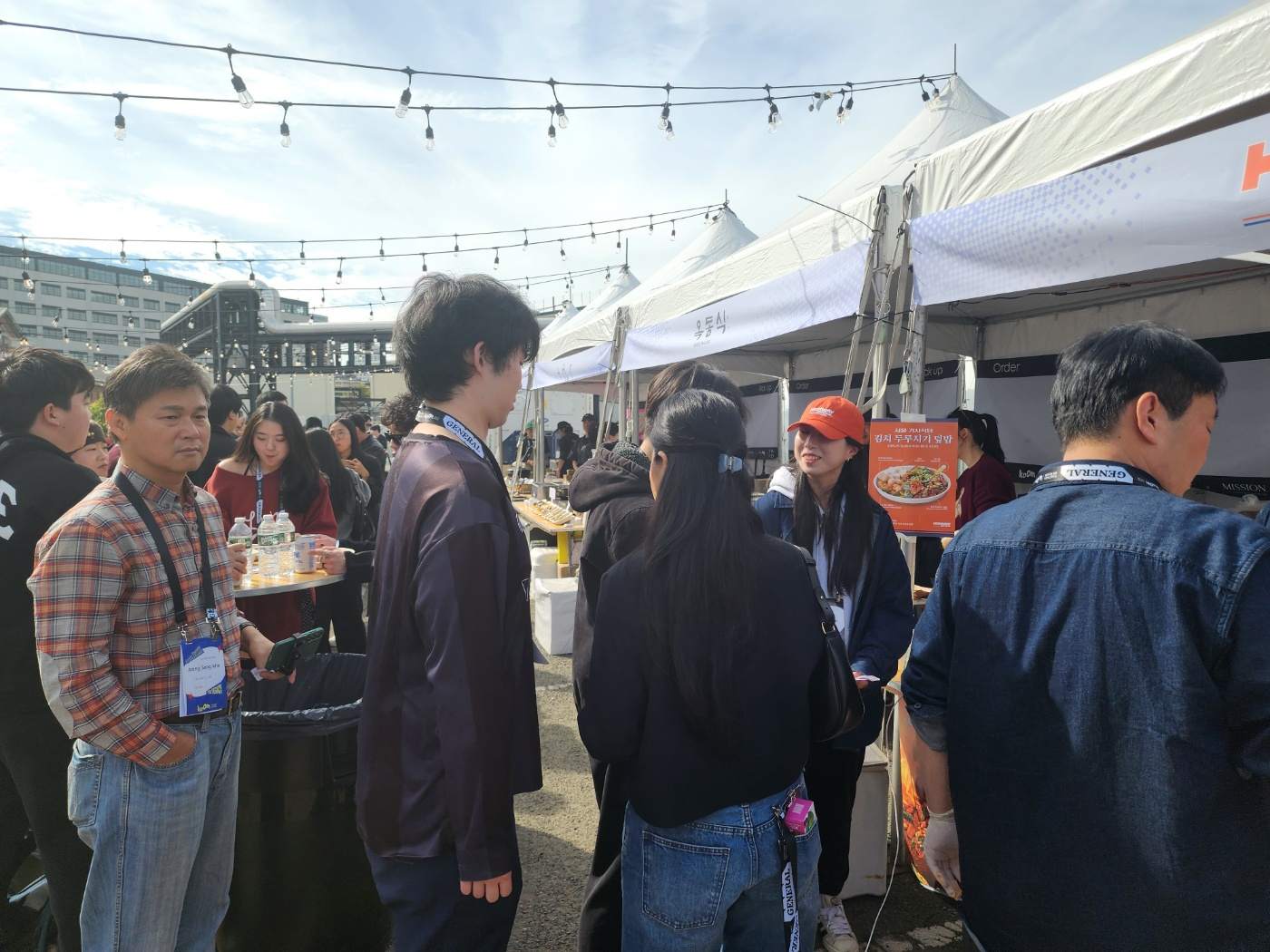
농심 – 케이팝 데몬 헌터스와 함께 만든 산업적 상징
넓게 트여 있는 페스티벌 홀 한복판의 농심 플래그십 부스는 ‘문화 IP와 식품 산업의 결합’을 상징적으로 구현한 공간이었다.
부스 벽면 곳곳에는 글로벌 애니메이션 케이팝 데몬 헌터스 캐릭터가 그려진 신라면 패키지가 진열돼 있었고, 붉은 신라면 네온과 캐릭터 색감이 어우러진 라면 터널형 구조가 관람객을 맞이했다.
관람객들은 직접 자신만의 스타일로 라면을 커스터마이징할 수 있고, 루미·조이·미라 캐릭터 복장을 입고 사진을 찍는 체험 프로그램에 참여했다. 특히 첫날 현장에는 미국 현지 소비자들이 대거 몰려 한국인보다 해외 팬들이 더 많았다는 점이 화제가 됐다.
또 농심은 단순한 제품 전시를 넘어 소셜 미디어 밈 캠페인을 결합해 방문객들이 디지털 형태로 부스 체험 인증을 공유하도록 유도했다. 이 캠페인은 “한류는 이제 맛과 이야기, 그리고 디지털 경험으로 연결된다”는 새로운 브랜드 전략을 강조하기 위한 시도로, 참가자의 온라인 게시물이 순식간에 확산되며 뉴욕 SNS 피드를 장악했다.
현장에서는 즉석 시식 이벤트도 진행됐다. 신라면과 툼바 파스타를 동시에 즐길 수 있는 ‘한류 퓨전 타임’은 하루 최대 3회 열렸으며, 농심의 글로벌 제품 라인업(신라면 블랙, 새우깡, 툼바 등)이 소개됐다. 뉴욕의 젊은 소비자들은 “라면이 하나의 놀이 문화가 되었다”며 강한 인상을 받았다고 전했다.
농심 길버트 남(Gilbert Nam) 매니저는 이날 현장 발표에서“60년 전 스타트업이었던 농심이 오늘날 글로벌 무대에서 ‘문화의 식탁’을 펼치고 있다. K푸드는 더 이상 그냥 먹는 음식이 아니라 경험과 이야기를 공유하는 IP 산업”이라고 밝혔다. 결국 이 부스는 단순한 프로모션을 넘어, K푸드 산업이 이제 콘텐츠·디지털·브랜드를 모두 포괄하는 한국형 복합 산업군으로 편입되고 있음을 실증한 장면이었다.
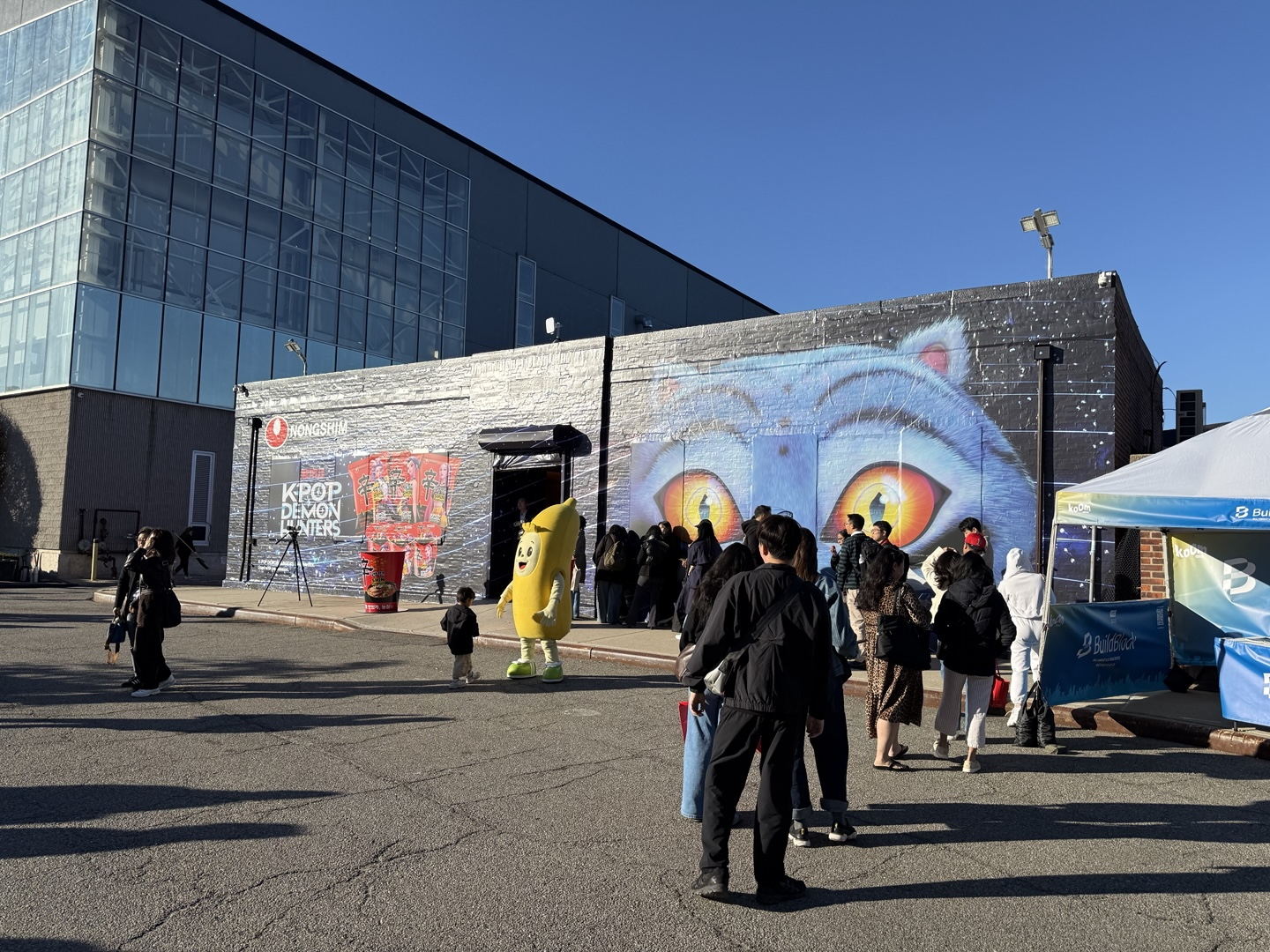
“한식은 창업가의 이야기이자 산업의 언어” – 김성훈 변호사의 시선
페스티벌에서 법률 지원 부스를 만든 법무법인 미션(MISSION) 김성훈 대표변호사는 올해 행사에서 ‘K푸드 스타트업의 글로벌 비전’을 주제로 연설했다.
그는 현장에서 “한식은 단순한 음식이 아니라 창업가의 브랜드, 나아가 산업의 서사다. 법률은 이들의 확장을 뒷받침하는 설계 언어”라고 강조했다. 김 변호사는 지난해에 이어 F&B·콘텐츠 스타트업 대상 크로스보더 자문 프로그램을 운영하며, 한국 식품기업들의 글로벌 법제 진출 모델을 제시했다.
그는 “K푸드의 가치사슬에는 창작자, 공급자, 법률, 투자자 모두가 연결되어야 한다”며, “KOOM은 그런 산업적 연결을 실현하는 현장이었다”고 평가했다.
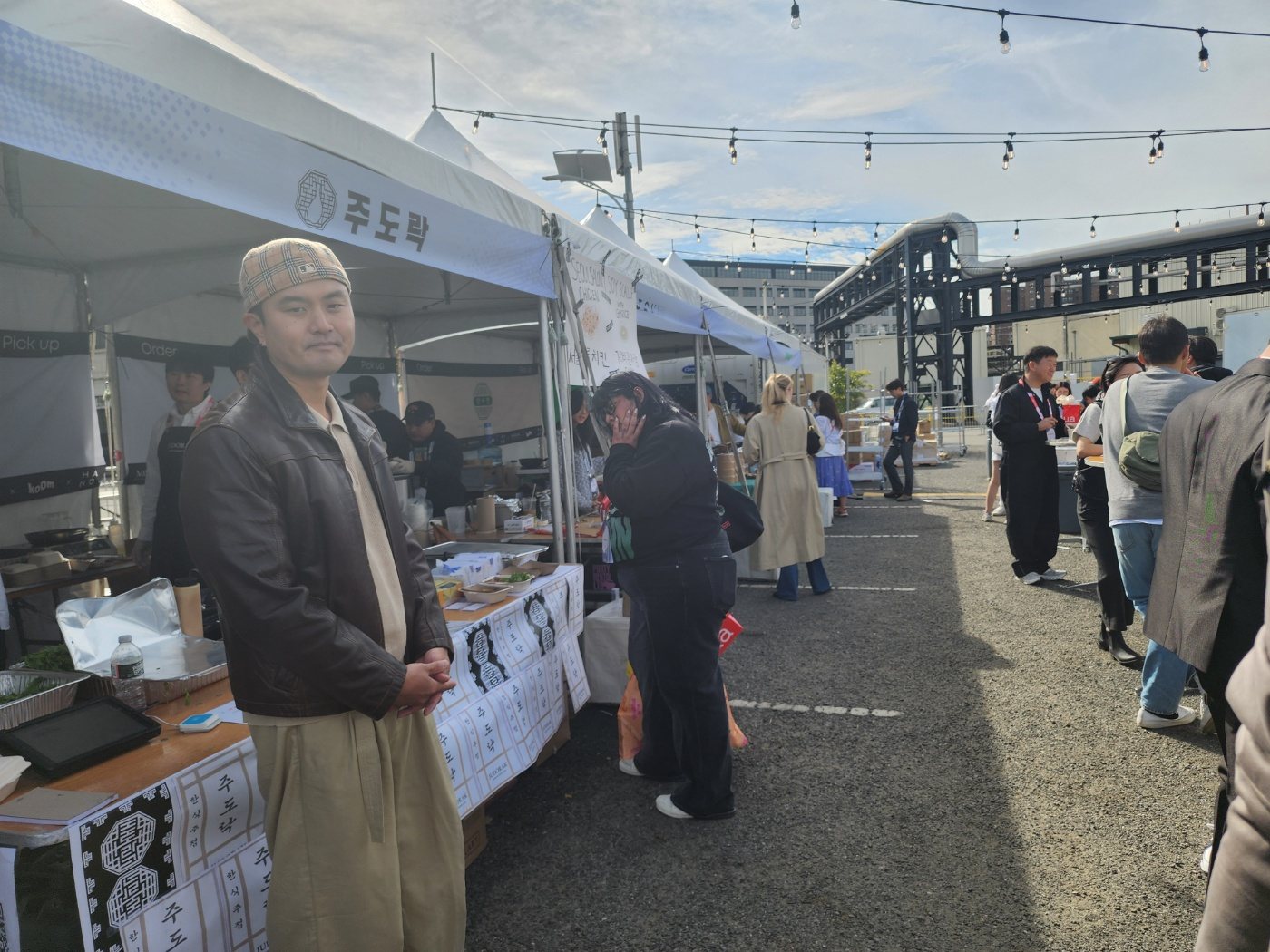
UKF, K혁신의 산업 네트워크를 그리다
행사의 주최사인 UKF(United Korean Founders)는 2019년 샌프란시스코에서 설립된 창업 네트워크로, 이번 뉴욕 행사를 통해 K스타트업·K라이프스타일·K콘텐츠의 산업적 융합 모델을 공식화했다. 정세주 눔(Noom) 의장은 “KOOM은 한국의 문화유전자(Cultural DNA)를 산업적으로 확장하는 플랫폼”이라며“K푸드는 이 확장의 출발점이자, 기술·투자·유통이 결합된 새로운 가치사슬의 중심”이라고 밝혔다.
이번 행사에는 네이버, 제네시스, 코스맥스, 스마일게이트, 농심, 대한항공 등 한국 주요 기업이 후원사로 참여해 공공·민간 협력에 기반한 ‘K산업 클러스터’의 가능성을 보여줬다.
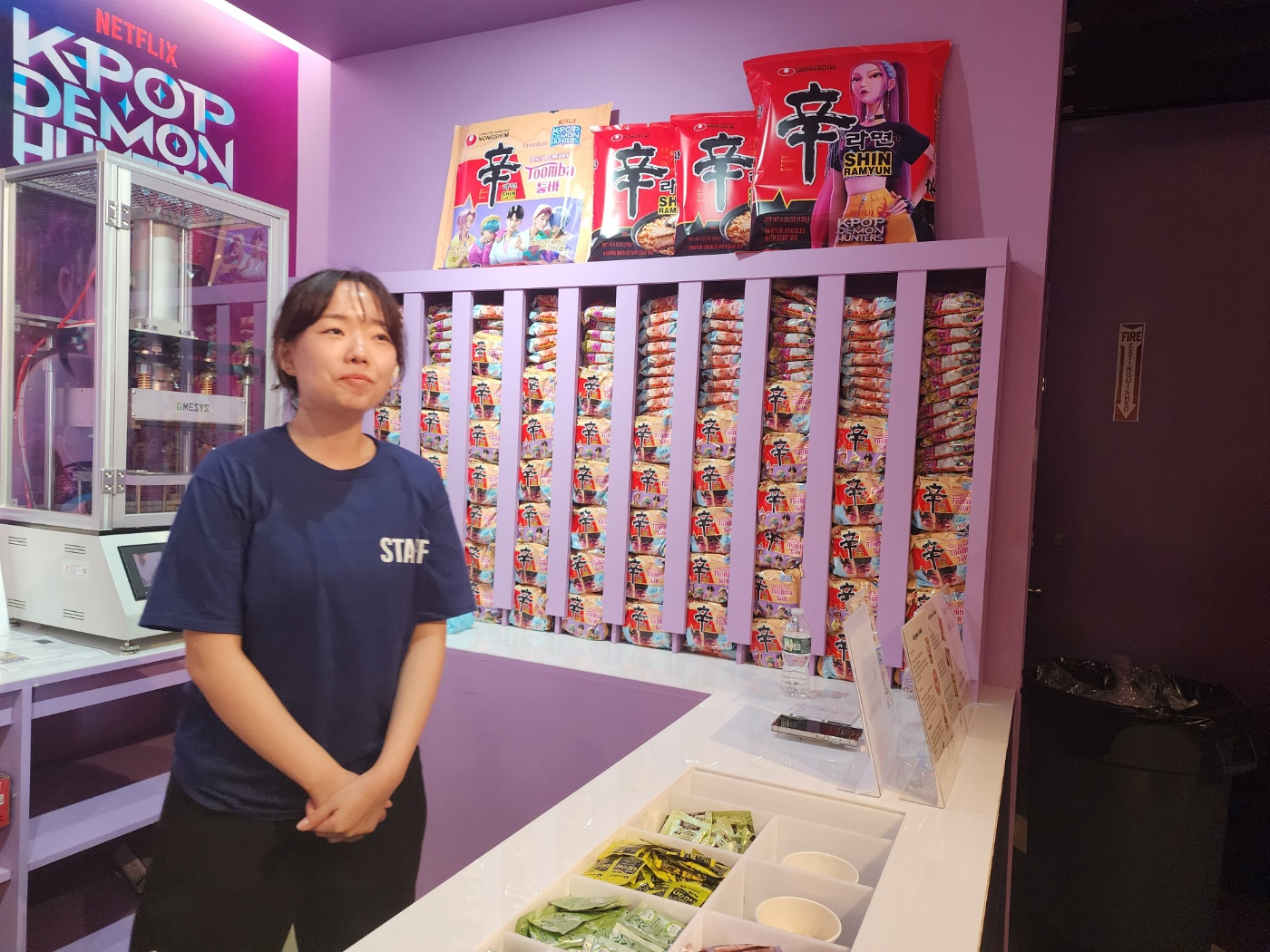
산업의 경계를 허무는 한류 축제
페스티벌의 밤마다 열린 공연에서는 에픽하이, 자이언티, 소유, 샘김 등이 무대에 올라
‘창업, 콘텐츠, 음악’이 한 공간에서 어우러지는 하이브리드 생태계를 완성했다 뉴욕 현지 문화평론가들은 “KOOM은 한국의 기업 생태계가 문화, 기술, 식품, 금융을 연결하며 하나의 경제권으로 진화하고 있음을 보여주는 상징”이라고 평가했다.
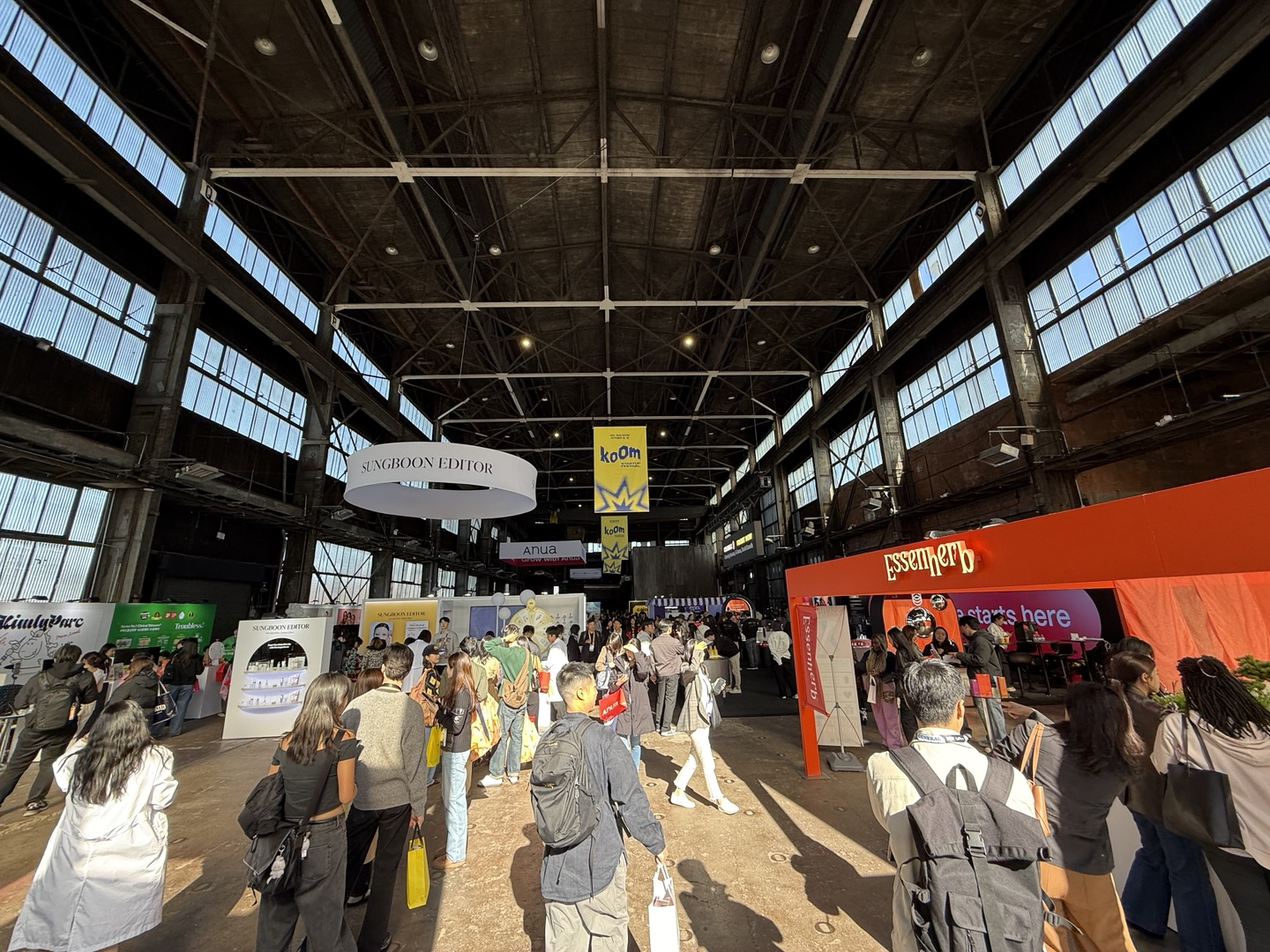
KOOM Festival 2025는 한국의 ‘문화산업’이 ‘글로벌 경제산업’으로 진화하고 있음을 명확히 입증했다.
음식은 콘텐츠가 되고, 브랜드는 산업이 되며, 창업가의 스토리는 국가의 경쟁력으로 이어졌다. 한류가 더 이상 ‘소프트 파워’가 아니라 경제적 인프라로 기능하는 시대를 상징한다.
뉴욕의 브루클린에서 열린 KOOM은 단순한 축제가 아니라 한국이 어떻게 문화, 비즈니스, 기술을 산업 언어로 통합할 수 있는지를 보여준 글로벌 K이노베이션의 현장이었다.


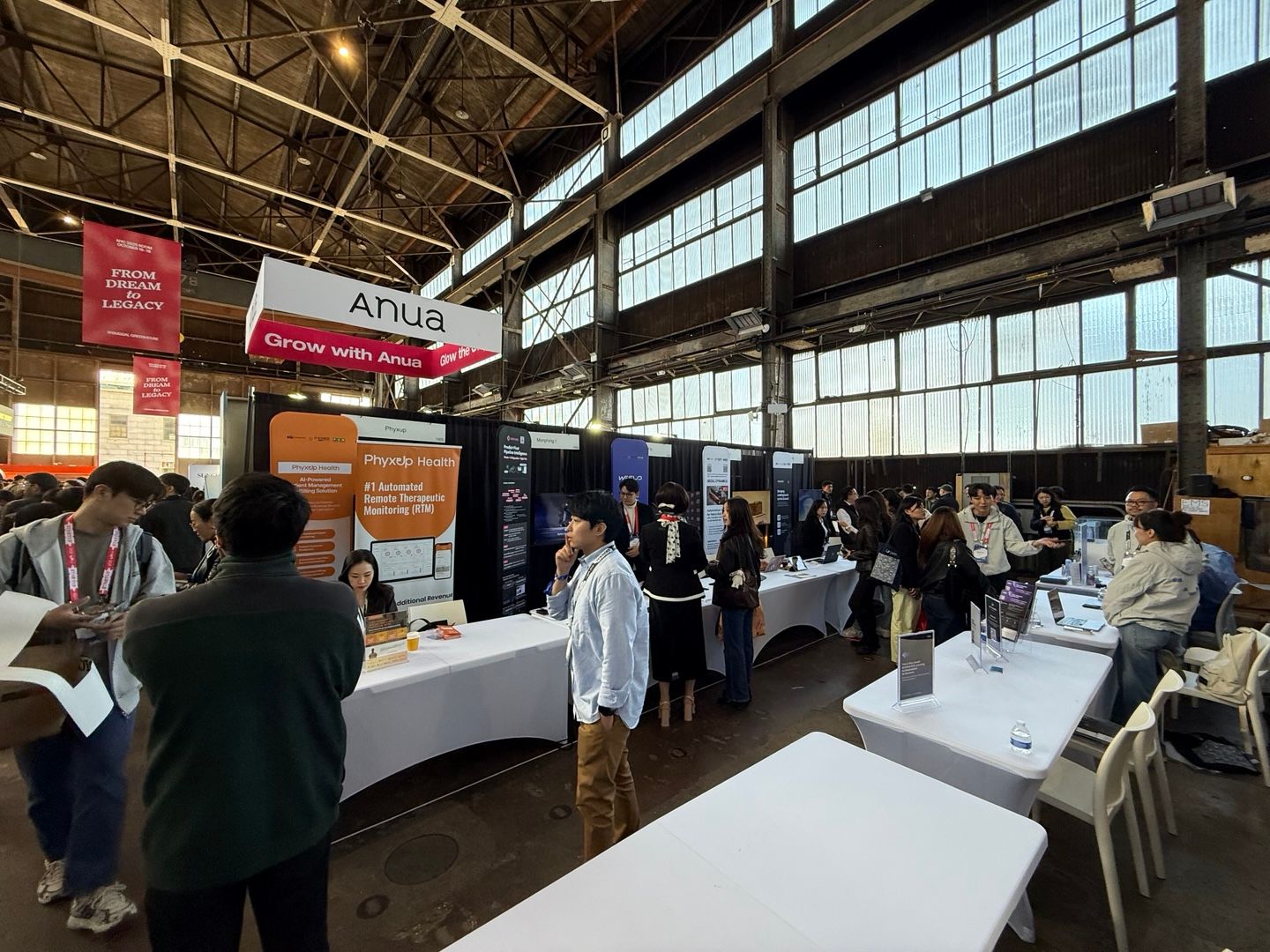
![[Mipcom2025]"AI is a Tool, the Artist's Message is the Purpose"](https://cdn.media.bluedot.so/bluedot.kentertechhub/2025/10/z8ahhy_202510160643.jpg)
![[MIPCOM 2025] Closes with Record Success, K-Content Reaches Global Peak](https://cdn.media.bluedot.so/bluedot.kentertechhub/2025/10/ajp2w0_202510150849.jpg)
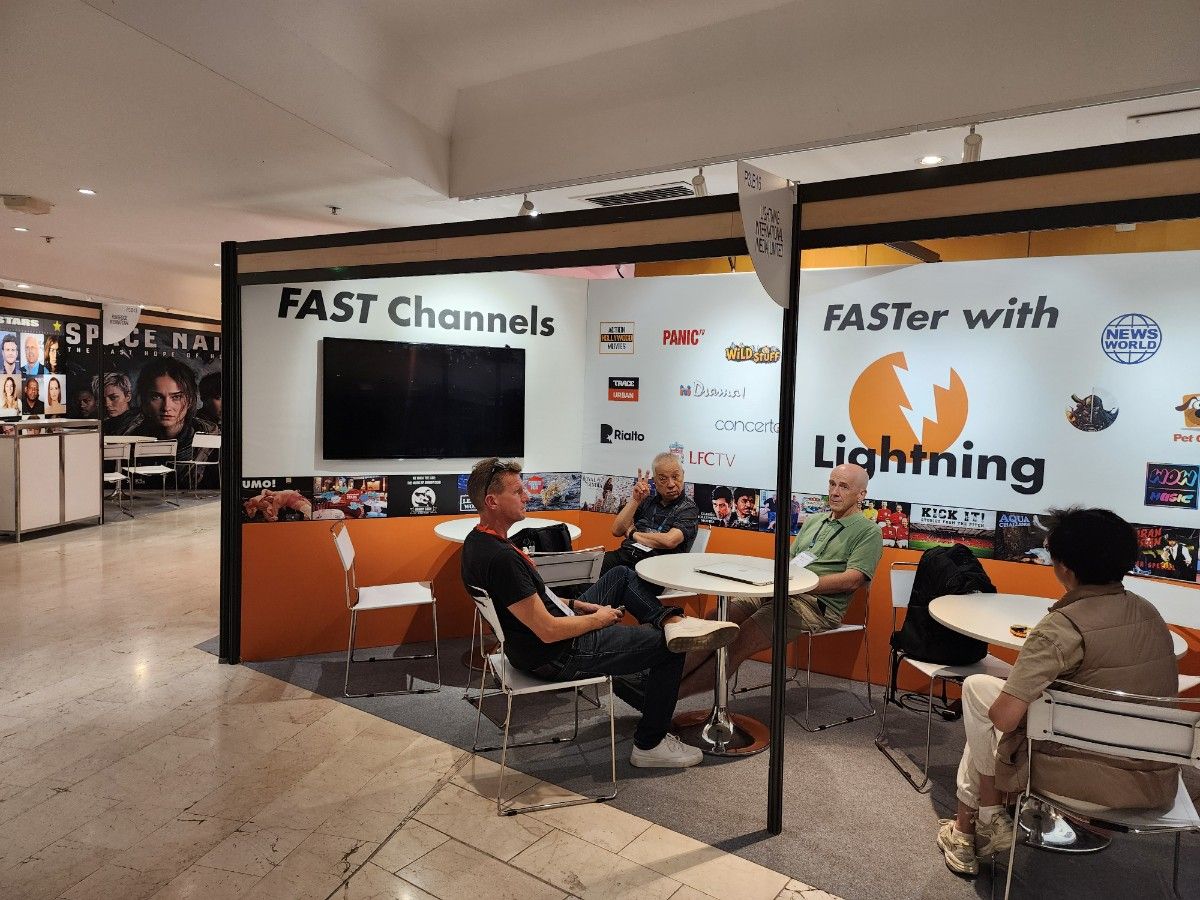
![[MIPCOM2025]글로벌 엔터테인먼트 트렌드](https://cdn.media.bluedot.so/bluedot.kentertechhub/2025/10/duxlsp_202510170000.png)
![[보고서]생성AI와 애니메이션](https://cdn.media.bluedot.so/bluedot.kentertechhub/2025/09/c49fxu_202509271057.png)
![[Samsung Ads] State of CTV July 2025](https://storage.googleapis.com/cdn.media.bluedot.so/bluedot.kentertechhub/2025/09/zhhtoy_202509140022.png)
![[Report] ‘STATE OF SUBSCRIPTIONS Specialty SVOD 2025’](https://storage.googleapis.com/cdn.media.bluedot.so/bluedot.kentertechhub/2025/09/mxdd6n_202509080356.png)



![[보도자료]Kocowa, 유럽 진출 1년 성과](https://storage.googleapis.com/cdn.media.bluedot.so/bluedot.kentertechhub/2025/07/d4i5qa_202507142153.png)

